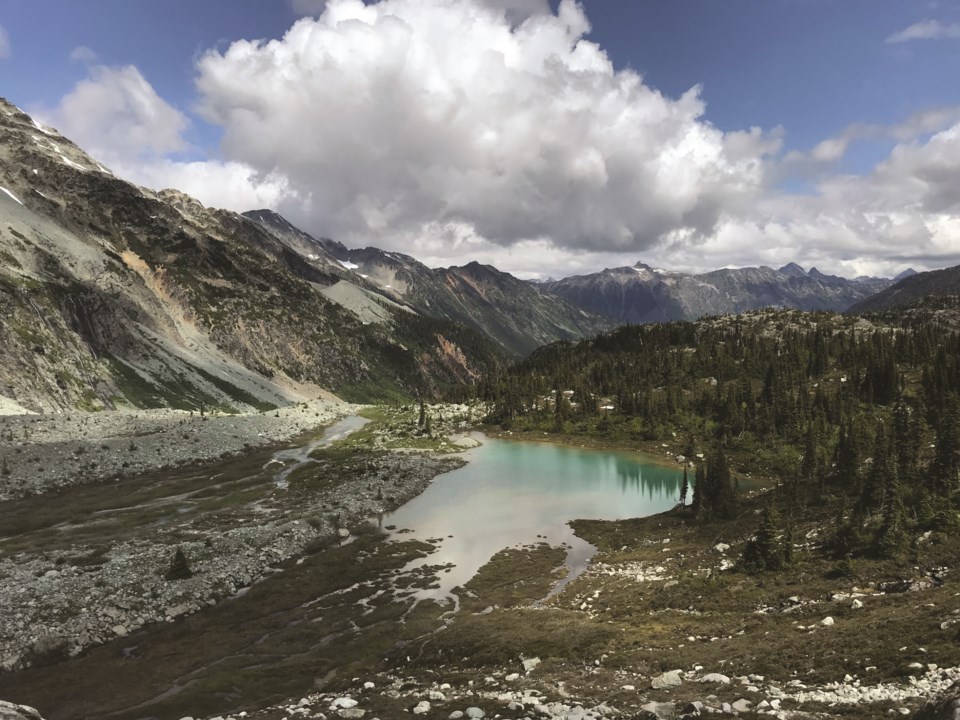A new coalition made up of 25 different B.C. organizations has banded together to ask the government to prioritize fish, wildlife and habitat management.
The aptly named Fish, Wildlife, and Habitat Coalition represents more than 273,000 British Columbians ranging from environmental organizations to hunting and angling guides, ecotourism companies, naturalists, hunters, anglers, and trappers.
In the Sea to Sky that includes the Canadian Parks and Wilderness Society, B.C. chapter (CPAWS-BC), and Coast to Cascades Grizzly Bear Initiative.
“It’s been successive governments that have continued to not prioritize our fish and wildlife,” said Johnny Mikes, field director of Coast to Cascades. “Because the situation is so dire, really, collectively, a few of us started talking—hunting and fishing organizations talked to their colleagues and we talked to our [non-profit environmental group] colleagues and said, ‘Let’s try to do something together.’ Because … certain actions can help a certain population or species, but there are fundamental changes and rethinks that need to happen in legislation.”
Overall, the group said it wants the province to invest in healthy landscapes, waters, and fish and wildlife stewardship, in partnership with First Nations and communities.
The aim is to find solutions “guided by science and Traditional Ecological Knowledge for improved management of species and habitat in B.C.,” according to a release.
That includes: creating legislation to protect fish, wildlife, and habitat, using existing legislation to address those areas, increasing funding, and creating a new governance model for their management.
In the Sea to Sky, Mikes said some examples of concerns are the mountain goat population in certain areas as well as Chinook salmon that’s almost extinct in places like the Birkenhead River. On top of that, there’s ongoing work to help recovery of the grizzly bear population in places like Stein-Nahatlatch.
“Having habitat prioritized when there are resource decisions made, that’s the single biggest thing that will help us across the province,” Mikes added.
Tori Ball, senior campaign manager for CPAWS-BC, who’s located in Squamish, said the issue is pressing.
“We’ve seen collaborative efforts like this coalition moving forward on important issues in B.C., and we have no time to waste with the rampant global biodiversity crisis and declining wildlife populations across the province,” she said in a release. “CPAWS-BC is looking forward to working collaboratively with the coalition partners of all levels of government to improve the state of the lands, waters, and wildlife in the Sea to Sky and across B.C.”
Members of the public who are interested in supporting the coalition can encourage organizations they’re part of to become a member or reach out to their MLAs to express their concerns about declining fish and wildlife in B.C., Mikes said.
“It’s not acceptable to the people of B.C. to have our fish and wildlife in the state they are,” he said. “We’ve come together to say the trends are not great. It’s brought us together and it’s time to ensure we reverse that trend.”
Bear alliance formed
The BC Bear Alliance, made up over more than two dozen bear organizations across the province, launched earlier this month.
The group is dedicated to finding solutions to protect and co-exist with bears, according to Christine Miller, who was the education coordinator and executive director of the North Shore Black Bear Society for 15 years before retiring last year.
Miller, who is co-chairing the new alliance, said the organization’s goal is simple: to consolidate the voices of dozens of groups across the province so they have a stronger front for advocating for a world where humans and bears can exist in harmony.
“When you’re trying to initiate positive change, say at the provincial government level, they get letters and emails and correspondence from so many different individuals and organizations,” noted Miller. “It was decided that if we had a unified voice, it would be better.”
Sylvia Dolson, who started the Get Bear Smart Society in Whistler in 1996, is the alliance’s other co-chair along with Miller.
While standing together in solidarity, the alliance has outlined a number of priorities and initiatives it hopes to tackle going forward.
Among those priorities would be developing a standardized toolkit that municipalities throughout the province could look to when creating good bear bylaws, solid waste management plans and other educational initiatives to allow humans and bruins to co-exist peacefully in communities, said Miller.
Visit bearalliance.com for more information.
- With files from Ben Bengston/ North Shore News

.jpg;w=120;h=80;mode=crop)



